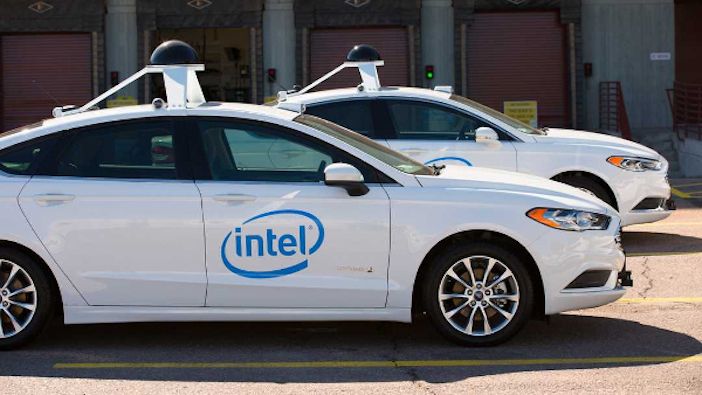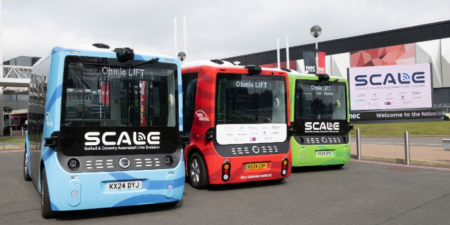Computing giant Intel Corporation is a founding partner of the new Institute for Automated Mobility (IAM) that has just been launched by the state of Arizona to advance the safe deployment of connected and automated vehicles (CAVs).
The unique public-private consortium will focus on the liability, regulatory and safety implications of automated vehicles and will work to develop standards and best practices for the industry to follow. The group is already working on liability and regulatory research, as well as plans for an enclosed 2.1 mil-long (3.4km) safety test track.
Alongside Intel, the founding partners include: the Arizona Department of Transportation (ADOT), the Arizona Department of Public Safety (DPS), the Arizona Commerce Authority, Arizona State University, the University of Arizona and Northern Arizona University.
Each founding partner has a seat on the board of directors to provide governance, fiduciary oversight and strategic guidance for the institute’s policies and priorities. The founding partners will also determine research priorities and targeted outcomes, and may sponsor ancillary research.
Each founding partner provides different areas of expertise:
• The Arizona Commerce Authority will oversee the institute and direct its mission to shape the future of automated transportation science, safety and policy;
• Academic partners from the state’s three universities will conduct research and publish papers on important safety-related topics, including liability questions surrounding automated vehicles involved in accidents, compensation models, and safety standards;
• The Arizona DPS and ADOT will build a traffic incident management center to integrate law enforcement and first responders with automated technologies unlike any other location in the USA;
• Intel will work with all partners offering Mobileye’s Responsibility Sensitive Safety (RSS) model as a starting point for building their solutions. RSS is already deployed by the Chinese company Baidu in its Project Apollo and Apollo Pilot programs for automated driving.
Mobileye’s CEO, Professor Amnon Shashua, first proposed RSS in 2017 as an open, transparent and technology-neutral starting point for the industry to align on what it means for an autonomous vehicle to drive safely. RSS formalizes human notions of safe driving into a verifiable model with logically provable rules and defines appropriate responses. RSS also ensures that only safe decisions are made by the automated vehicle and that it will do everything it can to avoid being involved in unsafe situations initiated by others.
“The Institute for Automated Mobility will bring together global industry leaders, a public sector team and the brightest minds in academia, focused on advancing all aspects of automated vehicle science, safety and policy,” said Arizona governor Doug Ducey, launching the initiative. “Arizona is committed to providing the leadership and knowledge necessary to integrate these technologies into the world’s transportation systems.”
Jack Weast, senior principal engineer at Intel and vice president of automated vehicle standards at Mobileye, added, “The safety of automated vehicles is essential to establish trust with consumers and governments so that we can all enjoy the multifold benefits they will deliver. By investing in the research of technology-neutral solutions, policies and standards for safety, we and the IAM will help build that trust.”





